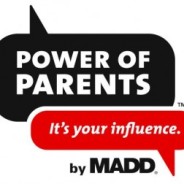 Power Talk 21 by MADD
Power Talk 21 by MADD
If you think “Power Talk 21” sounds like some sort of campaign, you’re right. Mothers Against Drunk Driving (MADD) is continuing the fight against drunk driving and underage drinking by creating “Power Talk 21”. Annually, on April 21st, MADD urges and encourages parents to have an open and serious discussion with their children about alcohol. MADD hopes that with parental involvement, more teens will abstain from alcohol and make more responsible decisions about alcohol in general, which will ultimately decrease the likelihood of being involved in an alcohol-related car accident. The goal of “Power Talk 21” is to greatly reduce and eliminate startling statistics like this one, “Every 53 minutes on average, someone is killed in a drunk driving crash and every 90 seconds, someone is injured because of this entirely preventable crime.”
Folks, It’s Up to You
Remember the anti-drug PSAs of the 1980s? There’s the kid, sitting on his bed being yelled at by his uptight, businessman of a father, who happened to come across his son’s secret stash of paraphernalia. The climax of the 30 second commercial is delivered by the teenage boy who yells, “I learned it by watching you!” If you grew up in the ‘80s there may have been a small window of time when you believed it and took it seriously before the PSA became a joke within your circle of friends. But the anti-drug campaign was on to something. While peers can persuade and pressure one another to do a myriad of things, parents are one of the biggest influences.
According to MADD Mom and program specialist for MADD, Helen Witty, Power Talk 21 has the great potential to be very successful and life changing as she states that statistics prove that kids are very much influenced by their parents. “Because three in four children,” she says, “say they make the decision to drink based on the influence of their parents, this is a parent program to empower, inform and encourage communication.”
“But I don’t want to be Mr. Squaresville! I want to be Cool Dad!”
If you are a parent of a teen, it might feel like a great feat if your kid even gives you the time of day. Many parents, desperate to connect with their teenager, make choices that may be ultimately destructive for their children. If you think back to your own upbringing you usually remember the strict parents who seemed so boring, grumpy, and limiting. Those were the parents who had well-defined rules about drinking and drugs and other illicit stuff. Then there was the “cool” mom or dad who trusted their teen a little too much and may have even tossed back a beer with you or purchased beer for your group of friends. That parent was memorable, but how much of what they did (or didn’t do) actually help you and your friends out? What kind of relationship did you have with alcohol? How about today? And do you want your children to have the same kind of experience with someone else’s parent?
Underage drinking is an epidemic and can lead to issues not only including alcohol related crashes, but also health problems and other serious social problems. In the United States, kids are getting a taste for alcohol early. The average girl has her first at age 13 and the average boy at age 11.
Have the “Talk” Early
It’s hard to think about your Little Leaguer or Girl Scout experimenting with alcohol, but the decision to talk to your child about alcohol can be long lasting and lifesaving. Trying to avoid an “awkward” discussion? Perhaps these statistics will make you risk the awkwardness and discomfort.
- Underage drinkers are at risk for lasting health effects. Heavy drinking at an early age, such as the preteen range when the brain is still developing, can result in permanent brain function impairments.
- Drinking can lead to sexual assault, rape, and sexually transmitted diseases.
- Young people who have their first drink at age 14 or younger are 6 times more likely to develop alcohol problems than don’t try alcohol until 21, the legal age.
- Underage drinkers have a tending to binge drink which can lead to alcohol poisoning which can lead to death. Now, are you ready to talk?
Many parents don’t know how to start the conversation and often rely on the school system to offer the appropriate information for kids, but it’s better to have a discussion about alcohol before an alcohol related incident occurs. When talking with your kid, talk about family history, your own experience, your personal feelings towards alcohol and your values. Be honest, be heartfelt, and be calm. Do everything you can to get your voice in your kid’s head so it’s the first thing they hear the first time they take a drink. With your help, honesty, and love, they might rethink that first sip.
Article Contributed on behalf of Scott C. Gottlieb & Associates, a New York personal injury lawyers. For more information visit: www.1800talklaw.com
Andrew Miller
Latest posts by Andrew Miller (see all)
- Make Room for Motorcycles - December 20, 2013
- Making Safety a #1 Priority at Your Rental Property - December 17, 2013
- 3 Fun Team-building Activities Outside of Work - November 18, 2013
